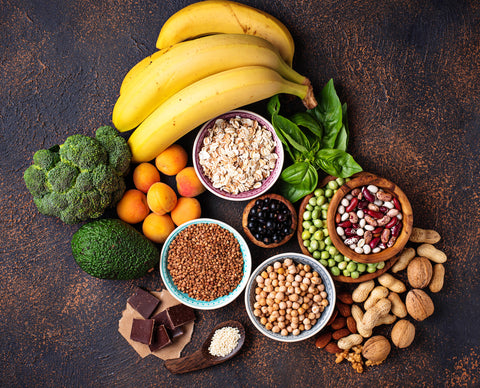
Lower back pain can be a debilitating condition that affects millions of people worldwide. While medical interventions and therapies play a crucial role in managing back pain, natural remedies can also provide relief and support. In this article, we will explore various herbs, supplements, and lifestyle changes that can help alleviate lower back pain naturally. By incorporating these remedies into your routine, you can take a holistic approach to managing your discomfort and promoting overall spinal health.
1. Turmeric:

The Golden Spice with Anti-Inflammatory Power: Turmeric, renowned for its anti-inflammatory properties, contains a compound called curcumin that can help reduce lower back pain caused by inflammation. Incorporating turmeric into your diet or taking curcumin supplements may provide relief and support the body's natural healing processes.
2. Ginger:

A Natural Analgesic: Ginger, another potent anti-inflammatory herb, has been used for centuries to alleviate pain. Its active components, such as gingerols, have analgesic properties that can help reduce lower back pain. Consider consuming ginger tea or adding fresh ginger to your meals to harness its pain-relieving benefits.
3. Devil's Claw:
Nature's Anti-Arthritic Herb: Devil's Claw, a herb native to southern Africa, has been traditionally used to treat various musculoskeletal conditions. Its anti-inflammatory and analgesic properties make it a popular choice for relieving lower back pain and reducing inflammation associated with conditions like osteoarthritis. Consult with a healthcare professional before using Devil's Claw, especially if you have existing health conditions or take medications.
4. Magnesium:

The Mineral for Muscle Relaxation: Muscle tension and spasms can contribute to lower back pain. Magnesium, a vital mineral, helps relax muscles and reduce muscle cramps. Incorporating magnesium-rich foods like leafy greens, nuts, and seeds into your diet or considering magnesium supplements under medical supervision may help alleviate back pain caused by muscle tightness.
5. Lifestyle Changes:

Exercise, Posture, and Weight Management: Beyond herbs and supplements, adopting certain lifestyle changes can significantly impact lower back pain. Engaging in regular exercise, such as low-impact activities like swimming or walking, can strengthen the muscles supporting the spine and improve flexibility. Maintaining good posture and avoiding prolonged periods of sitting or standing can also reduce strain on the lower back. Additionally, maintaining a healthy weight can alleviate pressure on the spine and decrease the risk of back pain.
Conclusion
While natural remedies cannot replace professional medical advice or treatments, they can complement existing interventions and provide relief for lower back pain. Herbs like turmeric, ginger, and Devil's Claw possess anti-inflammatory and analgesic properties that can help reduce pain and inflammation. Additionally, incorporating magnesium-rich foods or supplements and making lifestyle changes, such as regular exercise, maintaining good posture, and managing weight, can contribute to long-term relief and support spinal health. Remember to consult with a healthcare professional before incorporating any new herbs or supplements into your routine, especially if you have pre-existing medical conditions or take medications. By combining natural remedies with comprehensive medical care, you can take proactive steps toward managing and alleviating lower back pain naturally.




